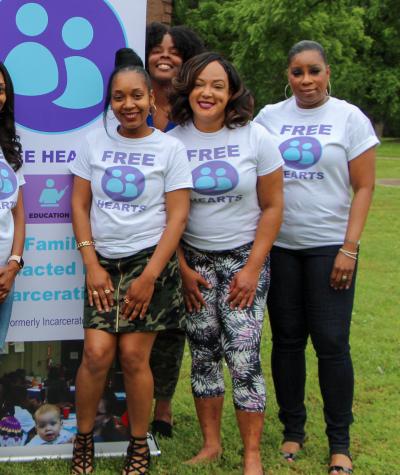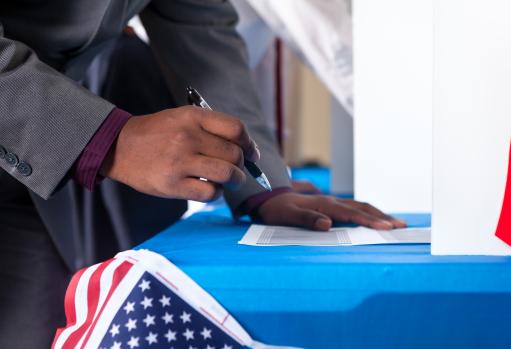By Dawn Harrington, Executive Director of Free Hearts
Tennesseans understand the value of helping our neighbors. We are the Volunteer State, after all. Especially at this moment, I think that a great way to help people in our neighborhoods and communities would be to ease Tennessee’s restrictive voting laws and allow more people to exercise their right to vote.
I understand firsthand how hard Tennessee makes it to exercise the right to vote. Over a decade ago, I was convicted of the felony of unlawful possession of a firearm while visiting New York. Tennessee law requires that to vote again after a felony, we complete our sentence, including probation and parole, and not have been convicted of a subset of very serious crimes. It also requires that we have paid off any fees and restitution – a modern-day poll tax the likes of which two federal courts have called unconstitutional this year. We are also the only state that requires a person restoring their rights to be current on child-support.
Here’s the thing: I served my time, I paid my debt, I have met all those requirements for nearly 9 years, and I still could not get my right to vote back. That’s because Tennessee insisted that I find a New York state probation officer to fill out redundant paperwork. I did not serve probation on my conviction. Moreover, all the officials I asked refused because they did not recognize out-of-state paperwork and my voting rights were restored under New York law, so why did I need this anyway?
Last fall, attorneys with the Campaign Legal Center (CLC) picked up my case. Last week, Tennessee finally confirmed that my paperwork had been accepted and my voting rights restored.
The voting rights restoration process’ complicated rules and paperwork, and years of misinformation from the state, keep Tennesseans from getting our votes and our second chances, even when we meet the requirements. For me, to get my yearslong battle for my voting rights across the finish line, it just took a little more help. That’s why for years, my organization, Free Hearts, has been helping others navigate the voting rights restoration process, and why we are now teaming up with CLC’s Restore Your Vote project to expand our efforts.
Right now, amid a global pandemic, we must take special care to reach out and help others get by, particularly our elderly and differently abled community members. That’s why it’s so baffling that on one hand Tennessee continues to make it difficult to vote and on the other, the state makes it unlawful, even criminal, for us to help our friends and neighbors navigate the process.
Tennessee is one of a minority of states that still requires voters to provide an excuse before they can vote by mail in any election, and its list of excuses is extremely narrow. It is among an even smaller minority of states who have not removed or expanded that excuse requirement for the upcoming 2020 elections due to the ongoing public health crisis triggered by the rapid spread of COVID-19. The state of Tennessee imposes strict limits on eligibility for voting absentee and even uses criminal penalties to deter people from assisting voters with obtaining absentee ballots.
Last year, Tennessee passed a law that created civil and criminal penalties for voter registration groups if we unknowingly submit registration forms with immaterial mistakes. Like the absentee ballot laws, that legislation was deliberately designed to deter us from helping our communities exercise the right to vote. CLC represented Tennessee voter registration groups that challenged that law in court, and earlier this year, the most egregious pieces were cut out for violating the First Amendment. Now, Free Hearts and other groups, represented by CLC and the Lawyers’ Committee for Civil Rights Under Law, are suing over the absentee ballot rules for the same reason.
During these uncertain times, the state of Tennessee is hard at work trying to make it more difficult to vote. Meanwhile, we are hard at work lending a hand to our friends, neighbors, and family to make their voices heard anyway. That’s what Volunteers do. And we have the Constitutional right to do it.

